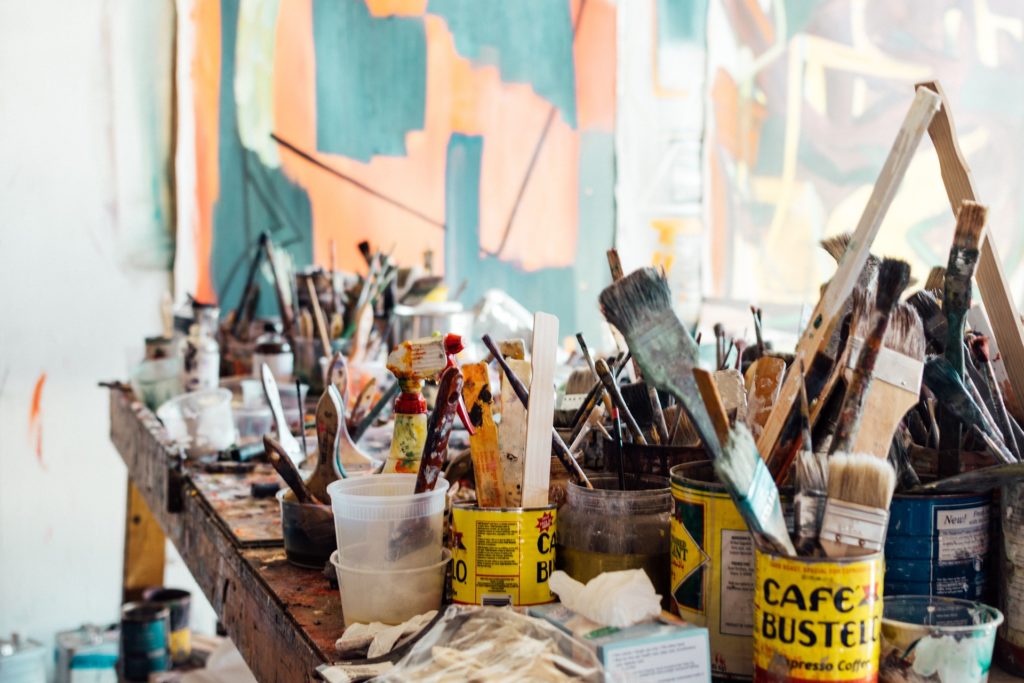Law & Politics
A Spate of Lawsuits Is Targeting Art Schools for Failing to Comply With Disability Act Standards
The Trump administration stopped drafting compliance guidelines, opening the door to confusion and a flood of lawsuits.

The Trump administration stopped drafting compliance guidelines, opening the door to confusion and a flood of lawsuits.

Eileen Kinsella

Just a few weeks after more than 75 New York art galleries were hit with a wave of lawsuits alleging that their websites are not compliant with the 1990 Americans With Disabilities Act, a group of art and design colleges across the country have now been targeted.
The new round of lawsuits accuses five schools—the School of the Art Institute of Chicago, the College for Creative Studies in Detroit, the Ringling College of Art and Design in Florida, the Art Academy of Cincinnati, and the Stephens Institute in San Francisco—of failing to make their websites accessible to the hearing impaired.
The plaintiff is the same in all five cases: Philip Sullivan. Jr., a New York City resident who is deaf. “He brings this civil rights lawsuit against Defendant for failing to design, construct, and/or own or operate a website that is fully accessible to, and independently usable by, deaf and hard-of-hearing people,” according to Sullivan’s lawsuit, filed in the US District Court for the Southern District of New York. Sullivan’s attorney did not respond to a request for comment.
Sullilvan’s suits claim that the schools have posted videos without closed captioning, or with limited captioning, making them inaccessible to deaf and hard-of-hearing people. In the suit against Ringling College, Sullivan says he tried to watch a video on the school’s “campus life” section of its homepage in January but was unable to. Unless he now “remedies the numerous access barriers on the Website, Plaintiff will continue to be unable to independently watch videos on the Website,” the suit says.
Each of Sullivan’s lawsuits against the art schools are identical save for the title and location of the individual videos in question.
The cases brought against New York galleries earlier this year were filed by two different plaintiffs who are blind. Thousands of other businesses, including hotels, resorts, universities, and restaurants, have been served with similar complaints last year as part of a response to a lack of clarity over businesses’s obligations under the Americans With Disabilities Act.
Under Title III of the act, companies cannot discriminate against disabled people “in the full and equal enjoyment of public accommodations.” But when the law passed in 1990, the internet was not as omnipresent as it is now, leaving a vast gray area over what defines an accessible website. Since 2010, the Department of Justice has been working to develop uniform guidelines. But the Trump administration, which has actively sought to reduce government regulations, abruptly stopped drafting the new rules in late 2017.
As a result, the number of website accessibility lawsuits “exploded” last year, to at least 2,258, an increase of 177 percent over 2017, according to a report published last month by attorneys for the Washington, DC-based law firm Seyfarth Shaw. New York and Florida rank as the two busiest jurisdictions.
The complaints allege that the websites violate Title III and several parts of the New York State Human Rights Law. But others say that the recent litigation unfairly targets businesses that may aim to do the right thing, but lack clear guidelines.
“These lawsuits do nothing to ensure websites are accessible to the hearing and visually impaired,” Adam Morey, a public affairs manager for the Albany-based Lawsuit Reform Alliance of New York, told artnet News in an email. “The thousands of dollars wasted on lawyer’s fees would be put to better use making the internet more accessible. Elected officials need to step in and put an end to this tidal wave of litigation and start guiding businesses and educational institutions toward compliance. Without real guidelines from the Department of Justice or Congress, every website is a sitting duck and a target for one of these lawsuits.”
artnet News reached out to the schools named in the lawsuits for comment but none responded by press time.